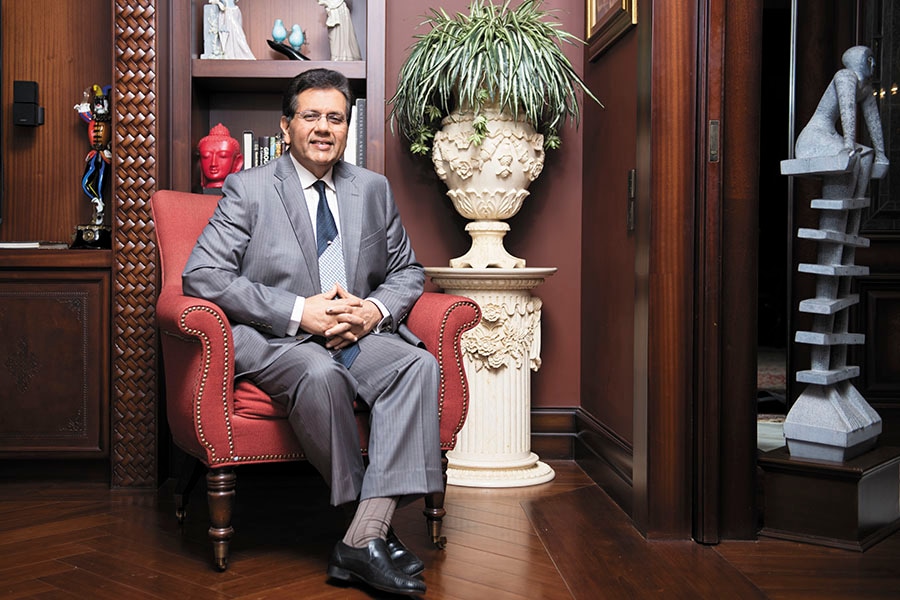
Our biggest success has been Skybags: Dilip Piramal
The founder and managing director of VIP Industries talks about brand strategies, GST's side effects and competition from Samsonite

Dilip Piramal wants to focus on the domestic market and tap new categories
Image: Mexy Xavier
VIP Industries, India’s largest luggage maker, appointed its founder Dilip Piramal, 67, as managing director in March after his daughter Radhika, who is now vice chairman and executive director, decided to spend more time in the UK to manage VIP’s operations there. VIP Industries’ income from operations for FY17 was at ₹1,275 crore, a 5 percent jump from a year ago, while consolidated profit rose by over 26 percent year-on-year to ₹83.9 crore. Piramal speaks to Forbes India about the brand and its strategy for the future. Excerpts:
Q. There have been a lot of new branding initiatives in several of VIP’s brands. Is your strategy working well?
Many of our initiatives in recent years are coming to fruition. Our biggest success has been Skybags. It was launched in 2011 for the hyper markets, with a high volume and low margins strategy. Our advertising campaigns also worked well, led by brand ambassadors such as actors John Abraham and Varun Dhawan. Skybags has become as large a brand—in terms of popularity—as the flagship VIP brand. [It contributed 28 percent of sales in FY17]. We are focussed on advertising to promote Skybags further. Our advertising budget is about 6 percent of sales.
Q. How would you describe the current business environment for VIP Industries?
Our brands have been doing well over the past year. But we got a major jolt with the introduction of the GST rate of 28 percent compared to the 18-19 percent tax that we paid earlier. This happened because luggage is seen as a consumer durable product. But the hike is very steep, so we will have to increase prices by 10-12 percent for our main brands if we want to maintain the same margins.
Premium brands like VIP, Skybags and Carlton will be in a position to take a price rise; we have already raised prices by 6-8 percent.
Q. What are your growth expectations now?
We have to see how it pans out and how customers react. Unlike other consumer durables such as refrigerators and washing machines, which involve a mix of technologies and cannot be made by the unorganised sector, luggage can be made. I fear higher taxes will push manufacturers towards the unorganised and parallel sectors.
Q. You have spoken about reinventing the VIP brand...
Overall there is no problem with the flagship brand, but it seems to be ageing a bit. We are working on a strategy for it. We need to refurbish it a bit. We do not need newer technologies; polycarbonate material and quality four-wheeled trolleys are in vogue and will stay so.
Q. What is your strategy to cope with competition, particularly Samsonite? It has acquired US-based online retailer eBags.
I don’t want to talk about Samsonite’s strategies. It has Tumi, which is in a different space [luxury] while eBags is a distribution channel; it may not help Samsonite particularly.
We are working well in the area of digital sales, and it will continue to grow; currently only about 1 percent of our sales comes through online channels. We do not see digital sales as a threat to our retail on-ground presence. Digital sales are a threat to retailers, not the manufacturer. That is where the value of the brand comes in… consumers are willing to pay 30-40 percent more for a branded product.
Q. Would you want to change the strategy for Aristocrat?
We had two new brand ambassadors, cricketers R Ashwin and Rohit Sharma, and this strategy has worked. We need to take a call on Alpha and Aristocrat—both being in the economy segment—and see whether we need to merge them.
Q. Are there any acquisitions planned? How is the overseas market panning out?
There are few options in the luggage space. The overseas market has been quite tough. Europe has been on the decline since 2008. In luggage, the entry barriers are high. So for a new product to be launched overseas will be very expensive. It is a better strategy instead to concentrate on India’s domestic market, and for growth, we should tap new categories. But for the next 12 months, we are fine with focusing on the luggage and handbags segments. Our strength is branding and retail distribution.
From a manufacturing perspective, our wholly owned subsidiary in Bangladesh, VIP Bangladesh, had a good Q4FY17. Profit before tax was about ₹3.5 crore for the quarter and about ₹9 crore for the entire year.
Q. Is India in a safe spot on the macroeconomic front?
Today all the problems of socialism have crept into the economy and government-owned companies. The reform process, which started in the 1990s, was much required. Corruption is still a massive issue that needs to be dealt with. But this government has got its policies right and comes across as transparent. It has fixed physical targets relating to distribution of gas and electricity to the rural poor. Even in a democracy, we need stern decision-making and actions.
(This story appears in the 30 November, -0001 issue of Forbes India. To visit our Archives, click here.)




